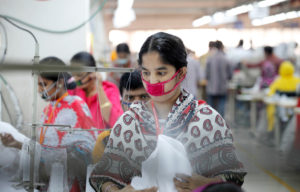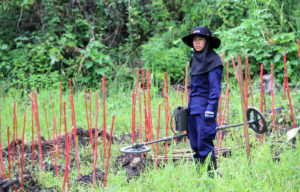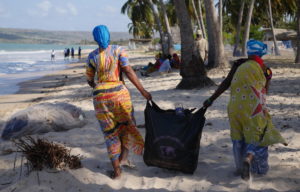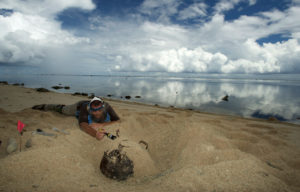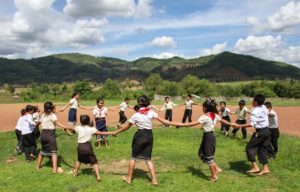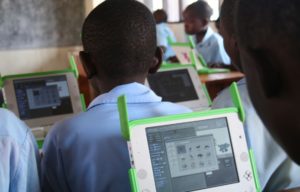
Prejudices About Development Aid Start With Children
DEBATE: Support for development aid can be promoted globally through teacher education and primary schools, writes Thomas Ravn-Petersen, Secretariat Director at the World’s Best News.
Share
The article was published at Altinget.dk 25 February 2014
Other categories
Region: Denmark
Theme: Constructive Journalism
Only two things can eradicate Danish prejudices about developing countries: knowledge – and more detailed knowledge.
Today, 51% of the Danish population believe that development aid ends up in the wrong hands, even though according to the National Audit Office of Denmark and Danida only about 1 thousandth of it disappeared due to corruption in 2012.
Another 27% of the population believe we will be able to halve the numbers of extremely poor people by 2015. Actually, this happened in 2012.
If a marketing department in a private enterprise presented results like this, it would have failed miserably. This is merely weak branding. There is too little focus on core values, storytelling and specific results; instead, too many disaster and corruption stories dominate the picture of developing countries and Danish development aid.
How did the Danish narrative about developing countries and development aid become so impoverished? Where are all the successes?
No guarantee for teaching about global issues
It is popular to accuse the NGOs of distorting the picture of developing countries with campaigns showing Africa as a continent of crying children with flies in their eyes and with limited prospects of a tolerable future. And this discourse has of course influenced the general perception of Africa. But the NGOs and Danida are not the only ones to blame for the Danish prejudices about developing countries.
Prejudices start with children. Children are curious; they accept authority and absorb the knowledge that surrounds them. Unfortunately, under the current government there is no guarantee that Danish schoolchildren will be taught about globalisation and global development.
This dimension has been removed from the new common goals for state schools, despite the fact that the previous government strongly emphasised that the international dimension should be implemented in all courses in schools. It is hard to blame teachers for this, because the paragraph in the executive order for Teacher Education that was supposed to ensure that ‘…international elements should be included in all subjects to a relevant extent…’ has been dropped.
No progress, no money
How does this shape our children’s knowledge about developing countries? And does it not indicate to our children that Danish society does not wish to prioritise knowledge about developing countries?
The same disaster discourse about famine and disasters in CAR/South Sudan/Syria, etc. dominates TV and newspapers, radio and the digital media. These stories are relevant and essential, but if you only watch the news, you could easily come to believe that the world is getting worse every day. It is not, it is better than it has ever been.
Slow news is not breaking news, and development takes time. Thus there is never a press conference for the children that did not die of malaria, or for the women in Bangladesh whose life expectancy has been extended by almost 20 years since 1975.
If it is the general view that all major progress lies behind us, there will be no motivation to look forwards. It makes no sense to donate money to the poor, since they will keep on being poor anyhow. Apathy and indifference become widespread: things will never improve anyway, you think.
This is a huge paradox, when in reality for the first time in history the percentage of poor people is decreasing in all parts of the world at the same time. Infant and maternal mortality are declining and a lot fewer people die from malaria and AIDS than 10 or 20 years ago.
Global development on the school timetable
So how do we ensure support for development aid? By holding our politicians responsible for considering developing countries important enough to be on the timetable – both in teacher education and in primary schools. And by introducing editors in the Danish media to constructive angles on the world. As NGOs we also bear a responsibility here.
The World’s Best News is a campaign that for the past four years has been telling Danes about the progress being made every day: the gradual realisation of the UN’s Millennium Development Goals.
In trains throughout Denmark, an average number of 800,000 passengers are presented every 20 minutes with news about global development; more than 400,000 Danes become acquainted with the World’s Best News newspaper every year in September; and more than 90 companies and NGOs are spreading the good news through their internal and external networks. The good news is spreading. But it is far from enough.
Put progress in the world on school timetables. Danes will back development aid if they can see that it is working.
